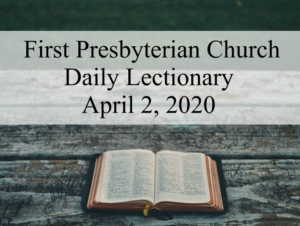
First Reading Exodus 7:25-8:19
Second Reading 2 Corinthians 3:7-18
17As he was setting out on a journey, a man ran up and knelt before him, and asked him, “Good Teacher, what must I do to inherit eternal life?” 18Jesus said to him, “Why do you call me good? No one is good but God alone. 19You know the commandments: ‘You shall not murder; You shall not commit adultery; You shall not steal; You shall not bear false witness; You shall not defraud; Honor your father and mother.'” 20He said to him, “Teacher, I have kept all these since my youth.” 21Jesus, looking at him, loved him and said, “You lack one thing; go, sell what you own, and give the money to the poor, and you will have treasure in heaven; then come, follow me.” 22When he heard this, he was shocked and went away grieving, for he had many possessions.
23Then Jesus looked around and said to his disciples, “How hard it will be for those who have wealth to enter the kingdom of God!” 24And the disciples were perplexed at these words. But Jesus said to them again, “Children, how hard it is to enter the kingdom of God! 25It is easier for a camel to go through the eye of a needle than for someone who is rich to enter the kingdom of God.” 26They were greatly astounded and said to one another, “Then who can be saved?” 27Jesus looked at them and said, “For mortals it is impossible, but not for God; for God all things are possible.”
28Peter began to say to him, “Look, we have left everything and followed you.” 29Jesus said, “Truly I tell you, there is no one who has left house or brothers or sisters or mother or father or children or fields, for my sake and for the sake of the good news, 30who will not receive a hundredfold now in this age – houses, brothers and sisters, mothers and children, and fields with persecutions – and in the age to come eternal life. 31But many who are first will be last, and the last will be first.”
We might say something similar to Jesus: “Lord, I have done everything I was supposed to since my youth. I went to the right schools, got the right job, married the right person, had the right children, bought the right things, gave the right things away, served on the right boards, lived in the right community, retired at the right time. What more do I need to do to be your disciple?” Jesus replies: “it’s not about what you have but what others don’t.” We come from places of wealth—even if our wealth is modest. Rarely have we had to confront depravation in any real way; and most of us don’t have real fears about our ability to house or feed or clothe ourselves or our families in the coming weeks and months. Our relative success, then, may give us the misapprehension that we are somehow favored of God. Truly our good life must be a reward for faithfulness. Jesus reminds us that, even when we have much, much is missing. What we often miss in our prosperity is service, real service, that costs us something. Right now something is being asked of us—something simple. We are to remain where we are so that a disease that disproportionately affects the sick and the vulnerable will go away. Moral heroism is not required—at least not for most of us. But, in a way, we’re being told that the best gift we can give is renunciation. Minor inconveniences for ourselves are necessary so that others may live. It’s a simple calculus. But how often do we misjudge it when things are going well? The ongoing crisis will still bankrupt people who receive lifegiving treatment. The homeless who are housed in empty hotels will leave quarantine with nowhere to go. Public figures will encourage us to consume as if that were the measure of our life—and provide moral cover for our selfishness by suggesting that it is somehow service for others. What we do now is service. The question is, when it’s all over, how will we continue to serve?
Holy God, we give out of our prosperity. Teach us how to give out of our emptiness, following in the way of love that leads to your cross. We pray in the name of our Savior, Jesus Christ, your gift to us. Amen.
